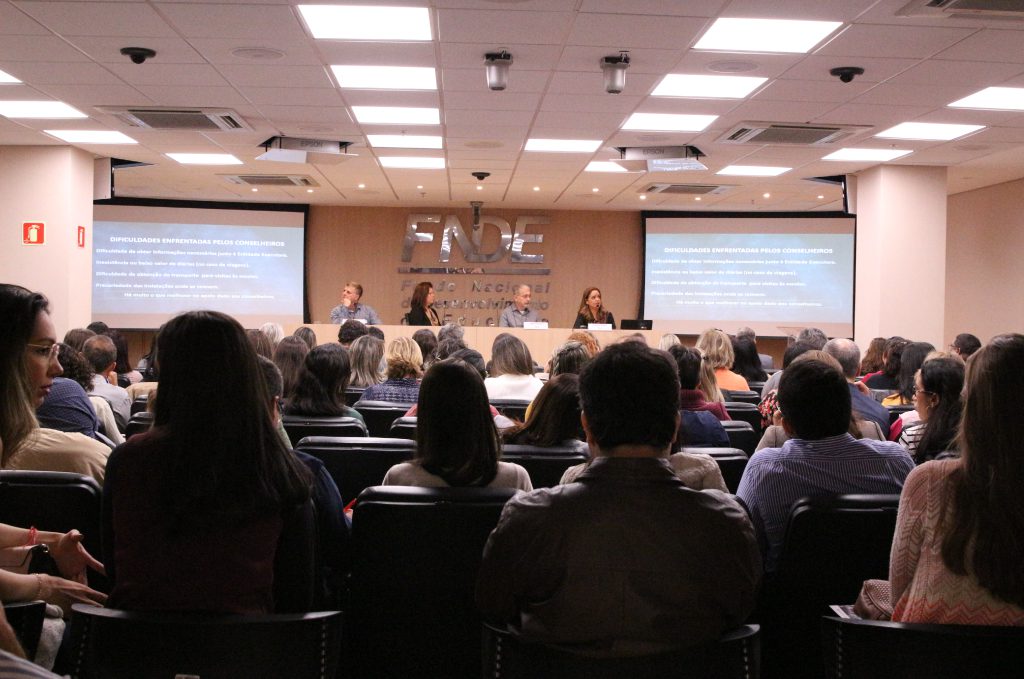
Photo: WFP/Alejandro Chicheri
The National Fund for the Development of Education (FNDE) held the 5th Meeting of Cecanes (Collaborating Centres for School Feeding and Nutrition) from 19 to 21 June, in Brasilia. The objective of the meeting was to promote the exchange of experiences and technical knowledge on the management of Brazil’s National School Feeding Programme (PNAE). The event also sought to strengthen relations between state education departments and representatives of the Collaborating Centres.
The Centre of Excellence against Hunger participated in the three-day event and gave a presentation on South-South cooperation and school feeding, based on its experience over nearly seven years promoting cooperation among developing countries in the area of school feeding. The Brazilian school feeding programme has already inspired more than 30 countries to develop their own solutions to provide food and nutrition to children in schools.

Photo: FNDE/SauloCardoso
Cecanes
Cecanes are centres linked to different Brazilian universities that aim to support and improve the implementation of the National School Feeding Programme. These centres support the monitoring of the programme and provide technical assistance to state and municipal education departments. Currently, the Cecanes are developing regional workshops to survey the demand for school feeding and the production of smallholder farming, as a way to improve the process of purchasing food from smallholder agriculture by the PNAE.
In addition to members of the 16 Cecanes, the meeting was attended by representatives of 20 state education departments, school nutrition counsellors, managers and technicians from FNDE, as well as other organs involved in the management of the PNAE. There were more than 100 participants in the meeting.
According to the general coordinator of the PNAE, Karine dos Santos, the meeting also served to establish standards for the work of the Cecanes in providing advice to states and municipalities, conducting research on PNAE management and empowering the agents involved in the implementation of the PNAE. “This is also an excellent opportunity for us to understand the most pressing difficulties in implementing the programme so that we can identify the most appropriate solutions,” said the coordinator.




